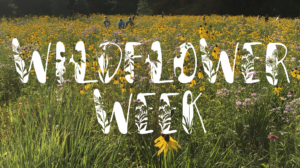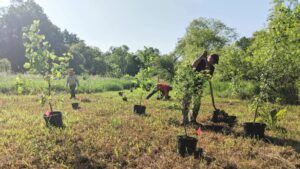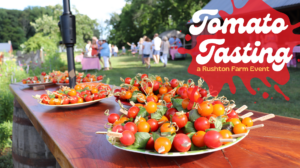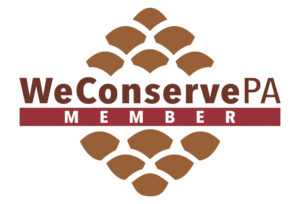By Outreach & Communications Intern Niya Moss
Cover Photo by Jennifer Mathes
Most people find single-use plastics simple and convenient, but there are alternative, more sustainable options that benefit both humans and the environment. Using these alternatives to single-use plastic will benefit all living beings by reducing the negative impacts on the environment.
Animals are not the only creatures threatened by plastic pollution — humans are, as well. While larger plastic materials are killing aquatic animals, minuscule plastic particles, or microplastics, infect our waterways. As a result, these microscopic plastic particles can easily be consumed by humans since they can travel into our tap water systems. Heavy consumption of these particles can result in serious health issues if left untreated. So how can we avoid endangering lives, including our own? Consider reducing the plastic you use with daily alternatives, including reusable grocery bags and bioplastics.
Reusable Grocery Bags
Reducing our plastic use starts with changing our habits; it’s time to make the switch from plastic bags to reusable bags for grocery shopping. Reusable bags are incredibly convenient and do everything a plastic bag can do without the negative impact on the environment. Reusable bags are developed from sustainable, or recycled, materials and are designed to be used multiple times. When people receive plastic bags from grocery stores, they are likely to throw them out once they’ve put their groceries away. Every year, Americans throw away nearly 1 billion single-use plastic bags after bringing them home. We need to find ways to bring this number down.
In addition to the environmental benefits of reusable bags, they are also more cost effective than plastic bags considering most states are now charging their customers for plastic bags. Rather than getting charged multiple times for several plastic bags, you will only have to buy a reusable bag once and continue using it for as long as it stays in good condition.
Of course, these reusable bags will get worn out over time, but they are much stronger and more durable than plastic bags, and they can be mended to prolong their durability. Without the need to throw out reusable bags after every use, you are already helping to reduce the use of plastic bags and its threat to our environment. The issues plastic pollution has created over the years are only going to get worse and worse. It’s time to put down that plastic bottle and start using alternatives. It may appear to be inconvenient but it’s for the best. Inconvenience is temporary, but damage to the environment can last for lifetimes.
Biodegradable Plant-Based Plastics
Using biodegradable plant-based plastics, or bioplastics, instead of single-use plastics is safer for the environment. When plastic material is described as biodegradable, it simply means that the plastic can be completely broken down into carbon dioxide, water and compost. Plastic material being biodegradable also implies that the material can decompose within weeks or months. Otherwise, the material is viewed as durable, or material that does not biodegrade as quickly.
So what exactly are biodegradable materials? Bioplastics are made from sugars that are grown from algae or crops. The sugars found in the plants are then converted into plastics. Bioplastics are mainly used in packaging, phone casings, straws, bottles, and medical implants. Using bioplastics will not exactly guarantee that the plastics issues will dissipate, but it does give a helping hand in the reduction of the use of single-use plastics.
Additionally, bioplastics are actually less toxic than single-use plastics, and they are cheaper than normal plastics. What most people are unaware of is the multitude of chemicals that are present within plastics. Plastic products contain chemical additives that can pose serious threats towards an individual’s health.
In addition, using bioplastics will reduce the demand for fossil fuels — such as coal — used to make conventional plastics. Doing so will leave a significantly smaller carbon footprint than normal plastics. As the demand for plastic increases, coal combustion increases to keep up with production. Coal combustion is one of the highest sources of mercury pollution in the ocean. As coal is burned, mercury makes its way into the atmosphere before being washed into the ocean. As this cycle continues, the ocean pollution only worsens. Using more bioplastics would reduce the use of coal combustion thus reducing the amount of carbon dioxide, and other greenhouse gasses, emitted into the atmosphere.
As for how to use biodegradable plastics, here are the basics: biodegradable material cannot be recycled. Now, if you are unsure about your item being biodegradable or not, look for the symbol shown here.
Not to be confused with the symbol for recycling, which is a group of three arrows in the shape of a triangle. To properly dispose of biodegradable items, they can simply be thrown into the garbage. Because these items are biodegradable, they will naturally decompose without causing harm to the environment. Another option would be to send your items to a recycling facility that specializes in biodegradable materials.
We all live in and share this environment, which means we all need to do our part in reducing the need for single-use plastics. It will not be easy but with enough time and hard work, we can make the environment better for all living beings to thrive.
— By Outreach & Communications Intern Niya Moss





